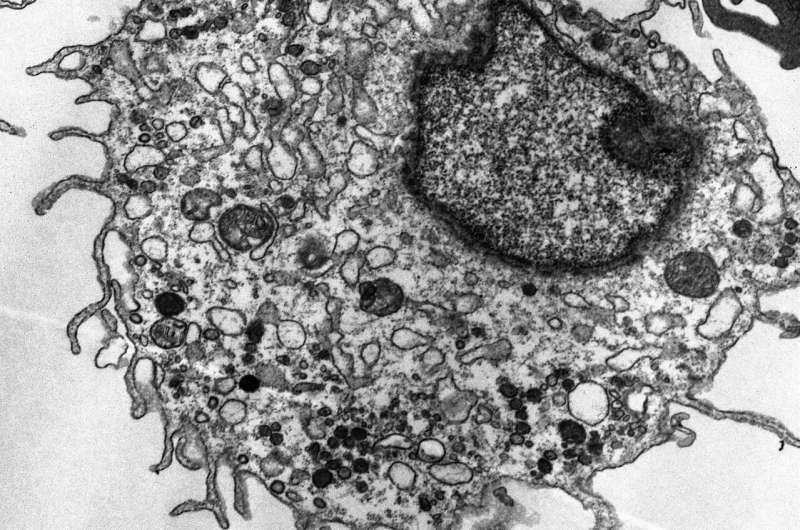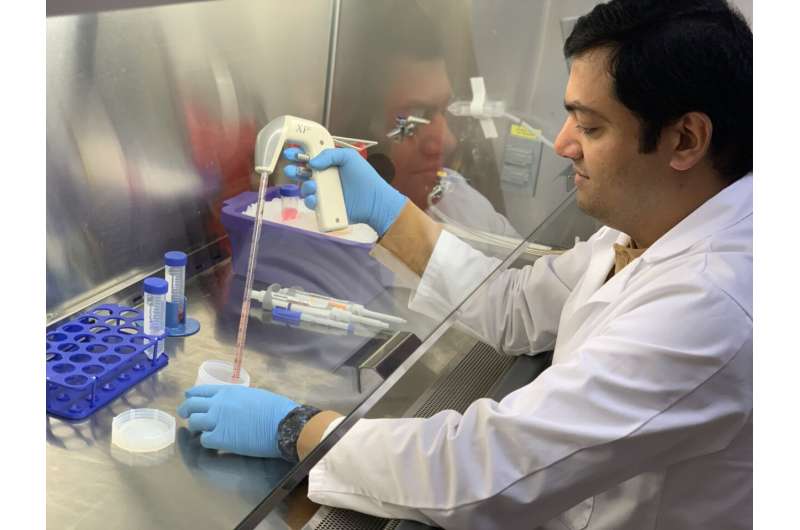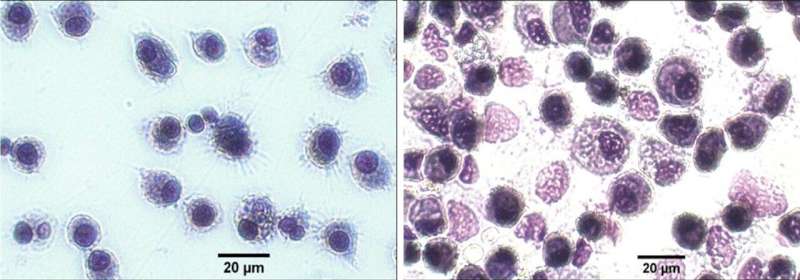
Researchers at Texas Biomedical Research Institute have succeeded in generating the lung’s most important immune cell, the alveolar macrophage, in the lab. The cell culture model will make it much easier and inexpensive for researchers around the world to investigate lung inflammatory diseases and test new potential therapies.
Macrophages are the “Pac-Man” of the immune system, eating up garbage throughout tissues in the body. Alveolar macrophages specifically live in the lining of lung’s air sacs where air exchange occurs, and are usually the first immune cells to encounter pathogens entering the deep lungs, such as SARS-CoV-2 or the bacteria that causes TB.
“It is critical to study tissue-specific cells to better understand mechanisms of health and disease, and to screen potential new therapies,” says Texas Biomed Professor Larry Schlesinger, MD, and senior author of the paper published in the journal mBio.
Old vs. new
Human alveolar macrophages have been challenging to study because they reside deep in the lungs and are hard to access. Typically, they are collected through time-consuming and expensive lung washes, which involve using a bronchoscope to move through the throat and into the airways to collect fluid samples.
This new model starts with a simple blood draw. White blood cells are isolated and placed in Teflon jars with specialized cell culture components. Surfactant is added along with three different cytokine proteins, which are usually found in the alveolar lining fluid.

“We call it the magic cocktail,” says Susanta Pahari, Ph.D., a postdoctoral researcher at Texas Biomed and first author of the paper. “We are mimicking the alveolar environment in cell culture. It makes the cells think they are in the lungs.”
Within six days, the cells differentiate, or transform, into alveolar macrophage-like cells. The generated cells are 94% genetically similar to human alveolar macrophages collected from lung washes. The Texas Biomed team confirmed the model can be used to investigate TB and COVID-19; the cells readily take up the pathogens.
“It is very rewarding to develop something that can help the research community,” says Dr. Pahari. “We’ve already received numerous emails across the globe requesting macrophage development protocols. We are now looking into developing a kit that we can provide to make it even easier for others to replicate what we have done.”
Pivot and improve
In a way, the advancement is a byproduct of the COVID-19 pandemic. When the pandemic hit, Dr. Pahari could not readily access human alveolar macrophages, and his research came to a grinding halt. So, he pivoted to focus on developing an alternative. It took years of trial and error to identify the most effective combination of components that go into the cocktail, as well as to conduct genetic testing and verification.

The model improves upon the standard approach used to create human macrophages in Dr. Schlesinger’s lab for many years.
“We’ve been using human monocyte-derived macrophages, which themselves are an excellent model, but they do not closely resemble the unique alveolar macrophages,” says Dr. Schlesinger.
Dr. Schlesinger notes that the approach that ultimately worked is reminiscent of the process to generate adult induced pluripotent stem cells, which place adult stem cells in a specific cocktail to help them revert to a state where they can then differentiate into totally new tissues.
“I am excited to see the full potential of the alveolar macrophage-like cells and if they can be integrated into next-generation lung organoids,” Dr. Schlesinger says.
More information:
Susanta Pahari et al, A new tractable method for generating human alveolar macrophage-like cells in vitro to study lung inflammatory processes and diseases, mBio (2023). DOI: 10.1128/mbio.00834-23
Journal information:
mBio
Source: Read Full Article


